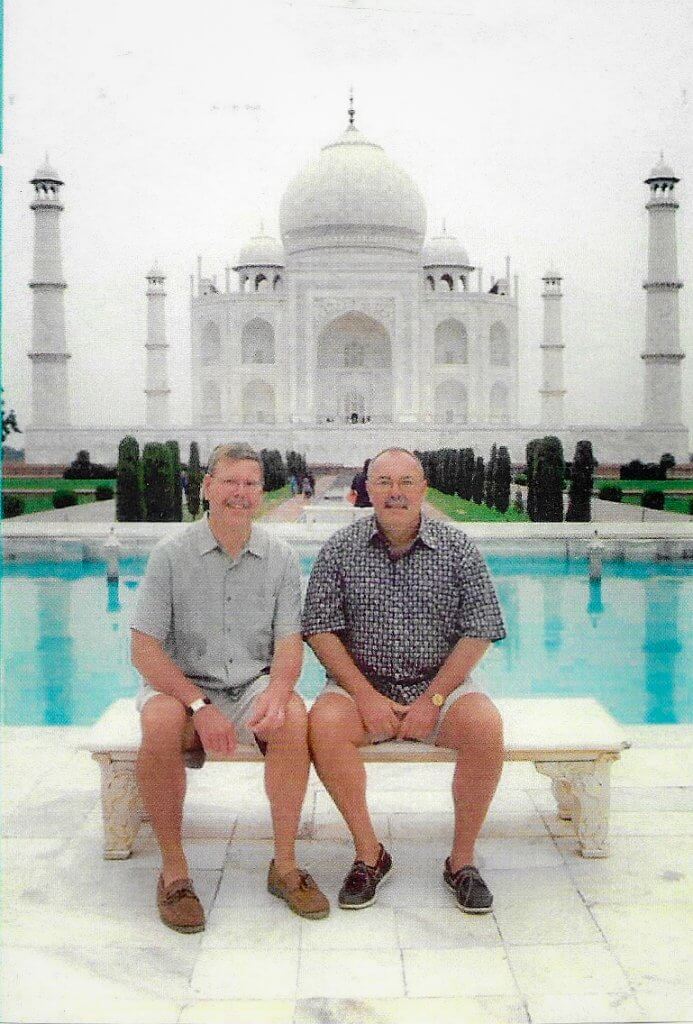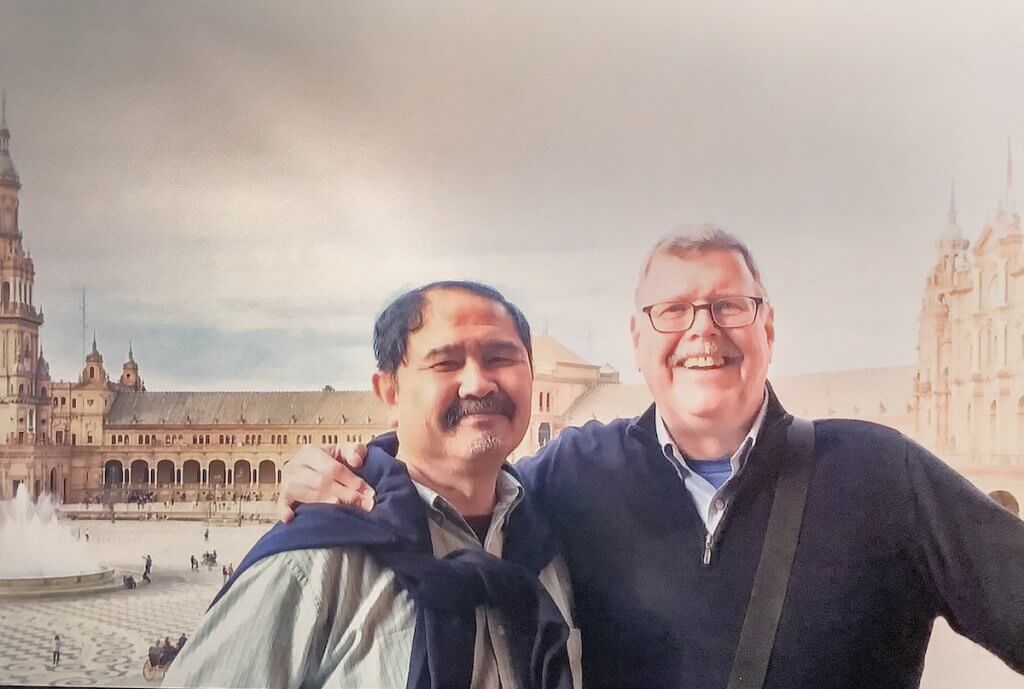Dana-Farber lymphoma patient John Babchak has a unique perspective on his treatment journey. More than two decades ago, in 2004, his late husband Richard Walsh was diagnosed with multiple myeloma. For the next five years, Babchak stepped into the role of caregiver, spending as much time with Richard as he could.
“The most valuable thing that you can give as a caregiver is your time, I think,” he says.
Babchak would accompany Walsh to his appointments, and during his two transplants, he would spend day after day in the hospital just to be present for Walsh.
Unfortunately, Walsh would pass in 2009, after several long hard weeks in the hospital. It’s difficult for Babchak to speak about, but he has learned valuable lessons from that journey and loss.
“If I can help anyone in any small way, I’d like to do it,” he says.

Then, in a strange twist of fate, Babchak was diagnosed with mantle cell lymphoma in 2020. His now-husband, Leo Evangelista, now became Babchak’s caregiver, and Babchak found himself on the other side of the relationship.
Both roles are difficult
Babchak says that his experience with Walsh has in some ways prepared him for this diagnosis.
“I try to be more patient and understanding with Leo because I know how I was when I was a caregiver. Because it’s tough,” Babchak says. “The caregiver role is almost as hard on the caregiver as it is on the patient. Neither role is easy.”
Getting that diagnosis can be overwhelming for both parties, and treatments can be taxing. “It’s life altering,” Babchak says.
He also points out that things are especially difficult now with the COVID-19 pandemic. Many cancer patients who are immunocompromised need to take extra precautions when interacting with the outside world. That is an extra layer of stress for those who feel that they can’t have, as Babchak says, a “regular life” because of COVID-19.
But Babchak was equipped to deal with the obstacles that have been thrown his way and has advice for caregivers and patients. He notes that everyone is different in their ways in terms of coping with cancer: “There are no magic answers for any of this stuff,” he says.
- Consider seeking counseling and mental health support. Babchak says to seek counseling and mental health support. He and Evangelista were able to take advantage of the social work department at Dana-Farber when he was being treated. “I found that support extremely helpful,” Babchak says.
- Find time for yourself. “Being a caregiver for a loved one is one of the most difficult things that you can face,” Babchak says. “Not just because of the amount of time that is required, but also the emotional weight of it, and the unknown of everything.”
Fortunately, Babchak has had promising results from treatment, and his provider, Austin Kim, MD, thinks that come January he will still be in remission.
“John and Leo have had the difficult task of navigating a new lymphoma diagnosis and intensive lymphoma therapy during the COVID-19 pandemic,” says Kim. “However, they have been a great source of support for one another and taken advantage of every resource offered here at Dana-Farber. I’m thankful John is sharing his wisdom with others as his perspective as a caregiver and a patient is so valuable.”

“I’m feeling very fortunate,” Babchak says. He’s grateful for his partner, Evangelista, who has been present throughout his treatment, and for his network of friends that has supported him.
“It is so important for the patient and caregiver to work together along with their care team, and John and Leo have certainly done that,” says Babchak’s nurse navigator, Gina Valeri, RN. “Throughout John’s care, both he and Leo have been inquisitive, knowledgeable, and always working together, in order to achieve the best possible outcome for John.”
“It’s also been so important that I’ve received care at a place that I have trust and confidence in,” Babchak says of Dana-Farber. “Since I was referred there, I’ve felt nothing but good things. I’ve felt well-treated from both a compassionate and clinical standpoint.”

It was so good to see my dear friend Richard again. It seems like yesterday . I miss him.
Thinking of you, John with a prayerful heart . Hope your treatments continue to bring you back to good health.